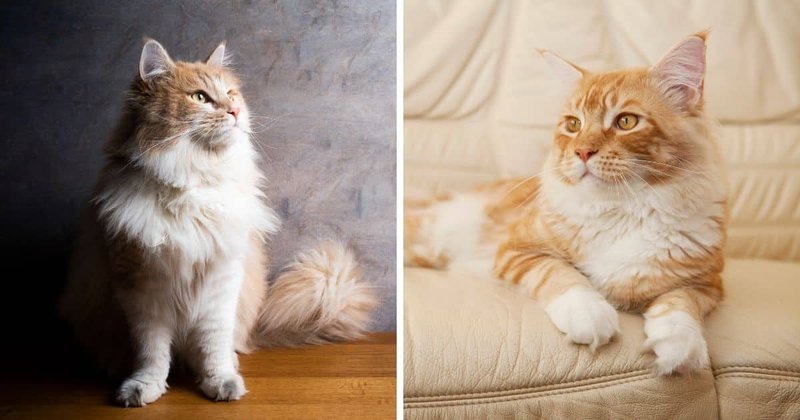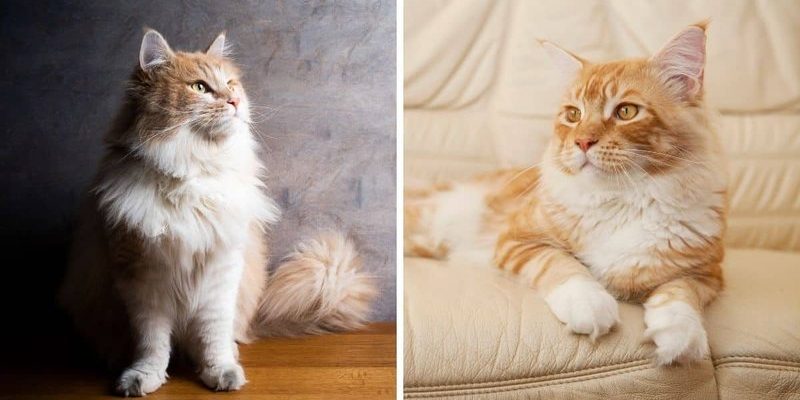
Imagine your Maine Coon as a family member who needs care and attention—just like a young child. They rely on you for everything, from food and shelter to health and well-being. Preventing health issues is like providing them with a solid foundation to grow upon. Here’s what you need to know about common health problems in Maine Coons and how to keep them from becoming serious.
1. Hypertrophic Cardiomyopathy (HCM)
Hypertrophic Cardiomyopathy, or HCM, is a condition where the heart muscle becomes thickened. This makes it harder for the heart to pump blood efficiently. Unfortunately, Maine Coons are genetically predisposed to HCM, and it’s one of the most significant health issues in this breed. You might be wondering how you can tell if your cat has this condition. Common signs include lethargy, rapid breathing, and even sudden collapse.
To prevent HCM, regular veterinary check-ups are essential. Your vet may recommend echocardiograms, which can help detect heart issues before symptoms appear. Here are some things you can do:
- Feed a balanced diet: Proper nutrition helps maintain overall heart health.
- Encourage activity: Playtime strengthens your cat’s heart and improves fitness.
- Monitor weight: Keeping your Maine Coon at a healthy weight reduces stress on the heart.
Being proactive about your cat’s heart health can make a big difference. If HCM is caught early, there are treatments available to manage the condition.
2. Hip Dysplasia
Hip dysplasia is another issue that can affect Maine Coons. This genetic condition occurs when the hip joint doesn’t fit snugly into the hip socket. Over time, it can lead to arthritis and pain, making it difficult for your furry friend to move around comfortably. Think of it like trying to do yoga while wearing shoes that are two sizes too small—uncomfortable at best!
To help prevent hip dysplasia, focus on maintaining a healthy weight and providing a well-balanced diet. Here are some tips:
- Gentle exercise: Regular, low-impact playtime can help strengthen the muscles around the hips.
- Quality food: Look for high-quality cat food formulated to support joint health.
- Consider supplements: Omega-3 fatty acids and glucosamine can be beneficial for joint health.
If you notice any limping or reluctance to jump, it’s essential to consult your vet promptly. Early interventions can lead to better outcomes.
3. Spinal Muscular Atrophy (SMA)
Spinal Muscular Atrophy is surprisingly common in Maine Coons. It’s a genetic disorder that affects the motor neurons in the spinal cord, leading to muscle wasting. While it’s not life-threatening, it can impact your cat’s mobility and overall quality of life. Imagine being ready to jump, but your legs just won’t cooperate—it can be disheartening.
Currently, there’s no cure for SMA, but understanding the condition can help you manage it effectively. Here’s how:
- Regular vet visits: Keeping tabs on muscle condition helps monitor any decline.
- Physical therapy: Gentle stretches or even hydrotherapy can help maintain strength.
- Comfortable living space: A warm, easy-to-navigate home can make a big difference for your Maine Coon.
Though SMA is challenging, a supportive environment can improve your cat’s quality of life.
4. Obesity
Obesity is a common concern in many cat breeds, and Maine Coons are no exception. These cats, with their larger frames, may seem hearty, but carrying extra pounds could lead to several health problems, including diabetes and joint issues. Picture your Maine Coon as a big fluffy balloon—you don’t want it to float away from health!
To prevent obesity, here’s what you can do:
- Portion control: Measure your cat’s food to avoid overfeeding.
- Interactive toys: These keep your cat engaged physically and mentally, encouraging movement.
- Regular vet check-ups: Your vet can help create a weight-loss plan if necessary.
Keeping your Maine Coon active and well-fed, but not overfed, is key to maintaining a healthy weight.
5. Dental Disease
Just like humans, cats can suffer from dental issues. Maine Coons are prone to dental disease, which can lead to pain and affect their overall health. Imagine trying to eat your favorite food with a toothache—it’s not pleasant! Signs of dental problems can include bad breath, difficulty eating, and swollen gums.
To prevent dental issues, here are some practical steps:
- Regular teeth brushing: It might sound daunting, but brushing your cat’s teeth can prevent buildup.
- Dental treats: There are special treats designed to bolster dental health.
- Professional cleanings: Your vet can perform cleanings as needed to keep their mouth healthy.
A little bit of dental care goes a long way in ensuring a long, healthy life for your Maine Coon.
6. Urinary Tract Issues
Urinary tract problems are another common health issue for Maine Coons. Conditions like urinary crystals and blockages can be painful and dangerous. It’s like a traffic jam in your cat’s system, causing frustration and discomfort. Symptoms to watch for include frequent trips to the litter box, straining to urinate, or even blood in the urine.
You can help prevent urinary tract issues by:
- Hydration: Ensure your cat drinks plenty of water. Consider a water fountain to encourage drinking!
- Proper diet: Low-magnesium cat food can help prevent crystals from forming.
- Regular vet check-ups: Catching potential issues early can save your cat a lot of pain.
Being vigilant about your cat’s urinary health can improve their comfort and well-being.
7. Grooming Needs
Maine Coons have luxurious fur that requires regular grooming to prevent mats and tangles. A neglectful grooming routine can lead to skin issues and discomfort—imagine wearing a sweater that’s three sizes too big and getting stuck! Regular brushing not only keeps their coat beautiful but also allows you to catch skin problems early.
Here’s how to keep your Maine Coon’s coat in top shape:
- Brush regularly: Aim for at least once a week, but more often during shedding seasons.
- Watch for mats: Be gentle when removing tangles to avoid skin irritation.
- Bathing: Maine Coons don’t usually need frequent baths, but occasional bathing can help with oily fur.
A little grooming goes a long way in keeping your Maine Coon healthy and happy.
Caring for a Maine Coon is a rewarding experience filled with love and joy. However, being aware of common health problems and how to prevent them can ensure your furry friend lives a long, healthy life. Think of it as building a sturdy house for your pet; the better the foundation, the more stable the home. Regular vet check-ups, proper nutrition, exercise, and grooming can make all the difference.
By understanding the unique health challenges that come with owning a Maine Coon, you can provide the best care possible. As pet parents, we all want what’s best for our furry friends, and taking these preventive steps is a significant part of that journey. After all, our Maine Coons deserve the best, don’t they?

